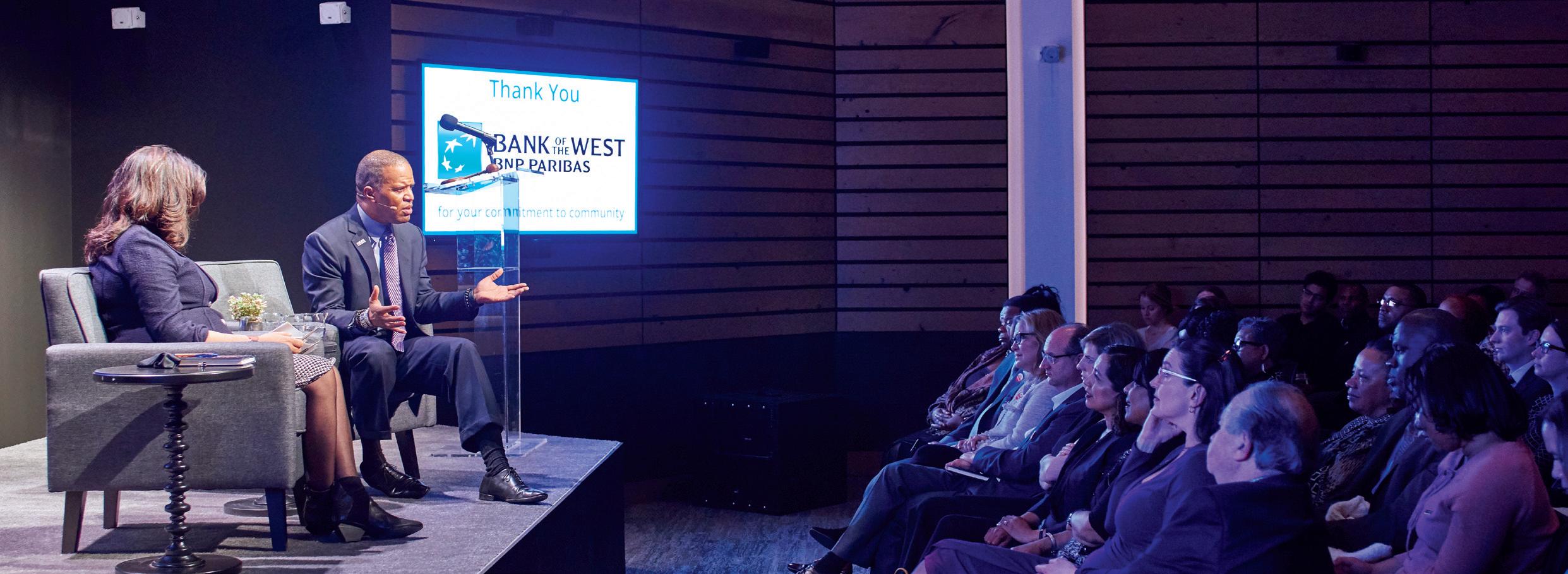
7 minute read
The Commons
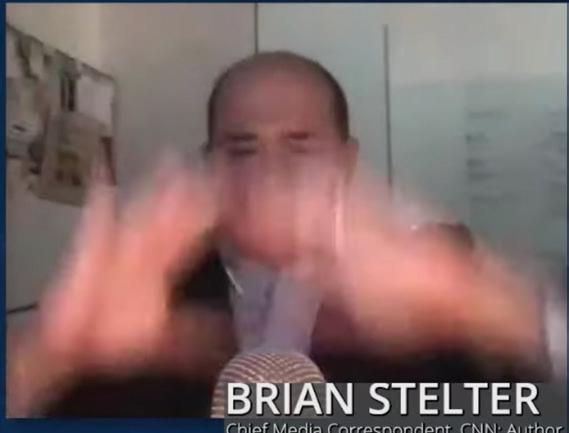
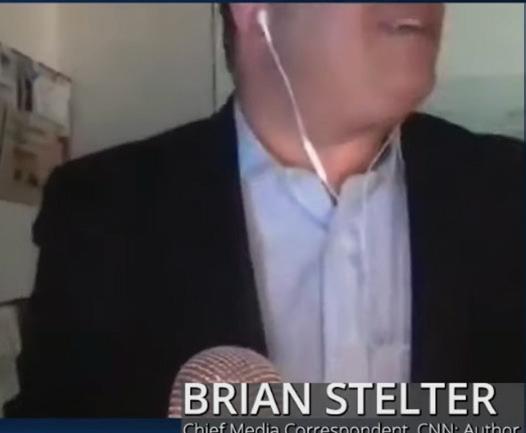
TALK OF THE CLUB
Zoom and the Art of Proper Lighting
When you come to an in-person Commonwealth Club event, what you see on stage has a story behind it. From the lighting and the sound projection to the screen behind the speakers and the placement of the chairs—it has all been put together by our staff and volunteers to ensure the best possible experience for the speaker and the audience— whether they’re in the room or watching and listening thousands of miles away.
In the digital-only era, we also try to control as much of the presentation as possible, but some things are out of our control. Such as CNN’s automatic lighting.
In early September, CNN’s chief media correspondent, Brian Stelter, was interviewed for a Club program by Mother Jones editor Clara Jeffery. Jeffery participated in the online program from her California home, while Stelter was in CNN’s New York City office, which he reported was practically empty. So few people were there, in fact, that the motionactivated lighting in his office turned off, and Stelter jokingly rolled his seat back and waved his arms in an attempt to activate the ceiling lights.
You saw it here first.
Good Sidewalks Make Good Neighbors
The entrance to the Club’s beautiful waterfront home in San Francisco might be covered by a mural and all of its programming is taking place online, but our building is still a site for gathering and conversation—socially distanced, of course.
Commonwealth Club Board member Joe Epstein recently visited the waterfront with his family, and his daughter snapped the picture below of Joe and his wife, retired judge Judi Epstein, in front of some fine outdoor dining. Our next door neighbors at legendary San Francisco restaurant Boulevard have expanded into outdoor dining so they can continue serving customers while also giving people the room to do so safely.
The Club is pleased to offer them some virtual dining space, and we’re in conversations with other neighbors to find ways our building can help them safely reopen for business. Stay tuned.
Take a Number
Our home at 110 The Embarcadero in San Francisco has also been a good citizen lately. In July, the building’s Toni Rembe Rock Auditorium was used as a training space for Census workers, all socially distanced and wearing masks. And come November 3, our building will once again serve as a polling station. Both are apt uses for this 117-year-old civic institution.
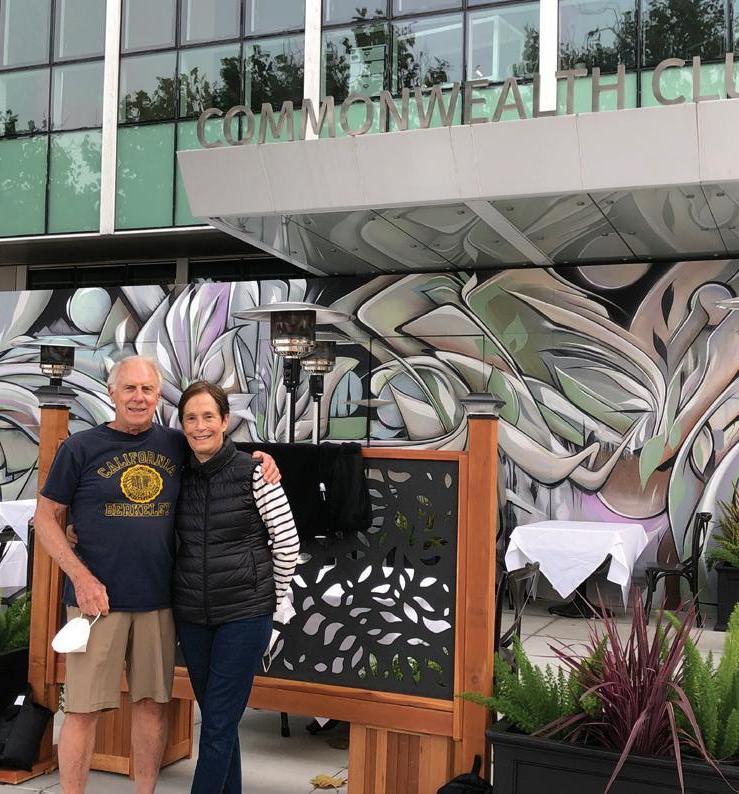
Joe and Judi Epstein pose before the Boulevard seating on the sidewalk in front of the Club’s headquarters. (Photo by Laura Rosenthal.)
LEADERSHIP OF THE COMMONWEALTH CLUB
CLUB OFFICERS
Board Chair Evelyn Dilsaver Vice Chair Martha Ryan Secretary Dr. Jaleh Daie Treasurer John R. Farmer President & CEO Dr. Gloria C. Duffy
BOARD OF GOVERNORS
Robert E. Adams Willie Adams John F. Allen Scott Anderson Dan Ashley Dr. Mary G. F.
Bitterman Harry E. Blount John L. Boland Charles M. Collins Dennis Collins Kevin Collins Mary B. Cranston LaDoris Cordell Susie Cranston Dr. Kerry P. Curtis Dorian Daley James Driscoll Joseph I. Epstein Jeffrey A. Farber Dr. Carol A. Fleming Leslie Saul Garvin Paul M. Ginsburg Hon. James C. Hormel Mary Huss Lata Krishnan John Leckrone Dr. Mary Marcy Lenny Mendonca Michelle Meow Anna W.M. Mok DJ Patil Donald J. Pierce Bruce Raabe Skip Rhodes Kausik Rajgopal Bill Ring Richard A. Rubin George M. Scalise Charlotte Mailliard
Shultz Todd Silvia George D. Smith Jr. David Spencer James Strother Hon. Tad Taube Marcel TenBerge Charles Travers Kimberly Twombly-Wu Don Wen Dr. Colleen B. Wilcox Brenda Wright Mark Zitter
PAST BOARD CHAIRS AND PRESIDENTS
* Past Chair ** Past President Dr. Mary G. F.
Bitterman* J. Dennis Bonney** John Busterud** (deceased) Maryles Casto* Hon. Ming Chin** Mary B. Cranston* Joseph I. Epstein** John Farmer* Dr. Joseph R. Fink** Rose Guilbault* Claude B. Hutchison Jr.** Dr. Julius Krevans** (deceased) Anna W.M. Mok* Richard Otter** Joseph Perrelli** Toni Rembe** Victor J. Revenko** Skip Rhodes** Renée Rubin** Richard Rubin* Robert Saldich* (deceased) Connie Shapiro** Nelson Weller** Judith Wilbur** Dennis Wu**
ADVISORY BOARD
Karin Helene Bauer Hon. William Bradley Dennise M. Carter Steven Falk Amy Gershoni Jacquelyn Hadley Heather Kitchen Amy McCombs Don J. McGrath Hon. William J. Perry Hon. Barbara Pivnicka Hon. Richard Pivnicka Ray Taliaferro Nancy Thompson
Alex Stamos, Director, Stanford Internet Observatory
We did a comparison of all of the [social media] platforms of what their policies are [regarding disinformation]. From our perspective, none of the companies have sufficient policies. We rated them not with whether we agreed with them or not but whether they had the policies and whether they were sufficient to understand and predict what steps they were going to take. . . .
None of the companies are specific about what they are going to do. Facebook specifically has a ‘newsworthiness’ exemption for the president, which I think is going to get them in trouble. Personally, I think that’s a fine thing around the general [election], if the candidate says . . . “I think the election’s being stolen,” and they’re making a general statement; I don’t think that’s something a trillion-dollar company should censor. But if they’re going to inject a specific fact and it’s a falsifiable fact, then that becomes problematic.
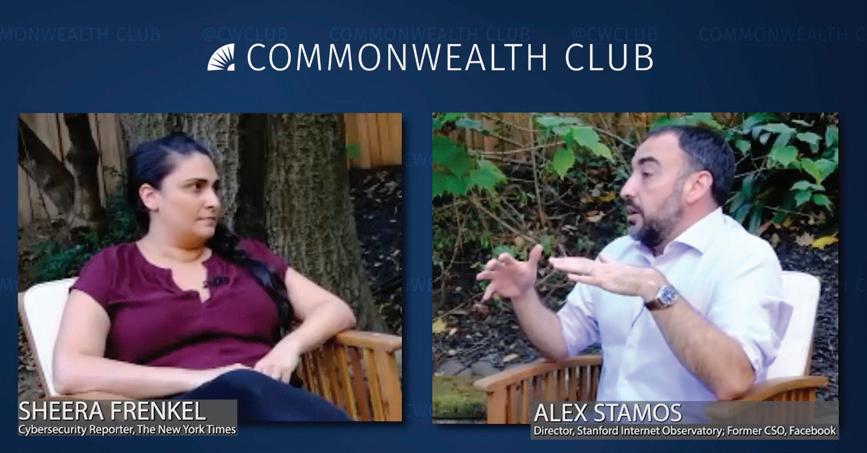
Voices from the Club QUOTE
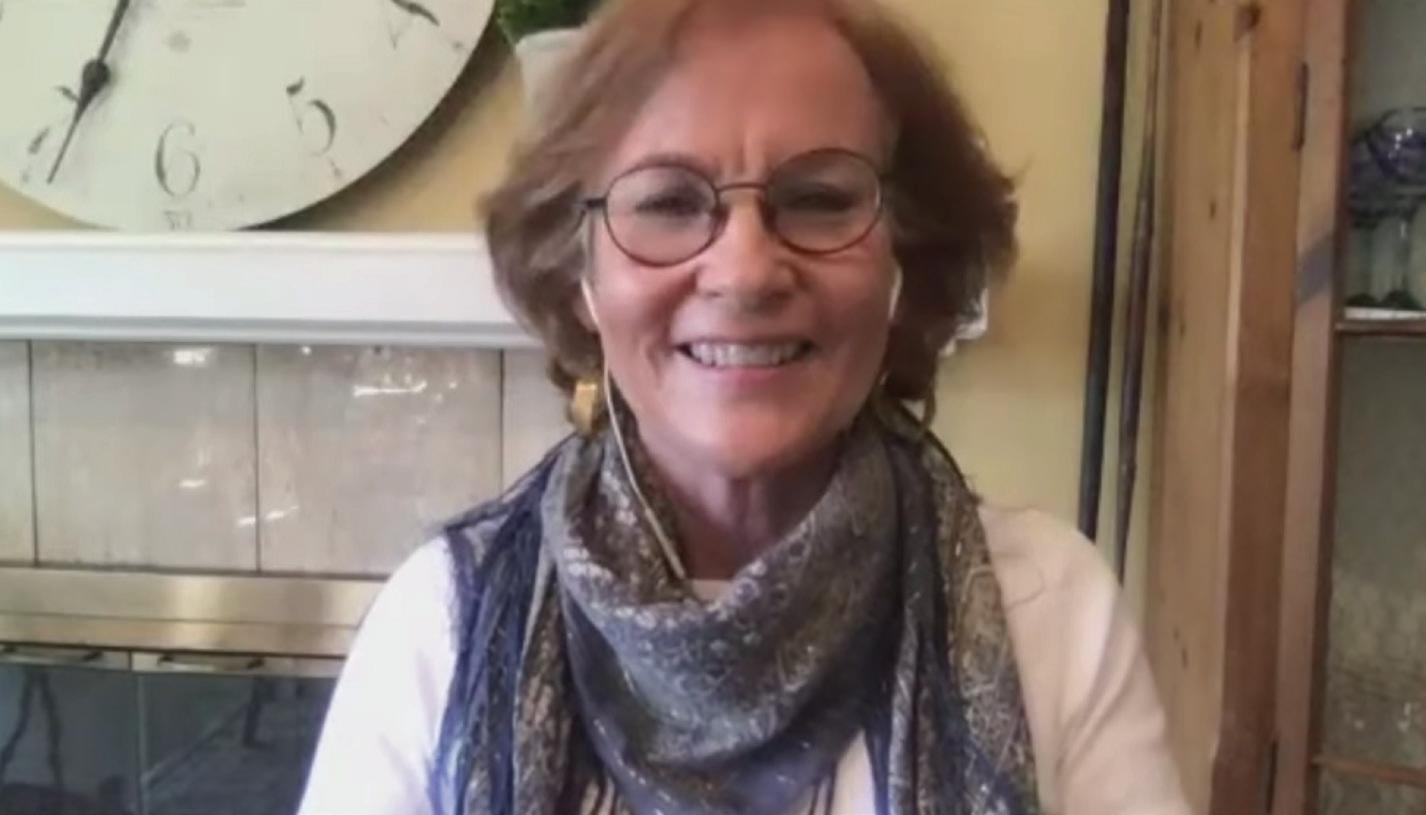
Joan Ryan
Author, Intangibles: Unlocking the Science and Soul of Team Chemistry
When we understand how our brains are wired and why they’re wired that way—you know, the modern human . . . is wired to connect. We are what one neuroscientist calls open-loop creatures, meaning we’re not born with everything we need to survive. So because we’re open-loop creatures, we are profoundly influenced by each other.
Jake Peavy, the great Cy Young pitcher who played for the [Oakland] A’s, captures that in a sports reference, but it’s true for all of us. When I asked Jake Peavy, who has just given 100 percent every moment he’s on the mound, and anybody who’s seen a pitch knows this—he’s just ferocious—I said, “Jake, you know, if team chemistry elevates performance, why does it matter for you, because you literally can’t give more than 100 percent.”
And he said “My teammates bring out a fight in me I can’t willingly summon for myself.”
UNQUOTE
Susan Eisenhower Author, How Ike Led
On June 5, [1944] just as these paratroopers are about to take off to the Normandy coast to unknown fates, [Gen. Eisenhower’s seen] smiling at those boys. I think it is particularly noteworthy, because his decision about the airborne drop was probably one of the toughest of that whole Normandy enterprise. The reason is rather simple: His technical expert, who was responsible for the 24,000 paratroopers who dropped, warned General Eisenhower about a week before D-Day that he thought the paratroopers should be canceled, because the Germans had reinforced a position and he thought it was dangerous and that between 50 and 70 percent of paratroopers and glider troops would be lost in that exercise.
Ike went into a room for two hours and decided against that recommendation, because the paratroopers were central for opening a number of pathways off Utah and Omaha beaches. Having made that decision a week earlier and having written a note for his pocket that said “If the landings fail, the responsibility’s mine and mine alone,” he goes out and looks these paratroopers in the eyes—thinking that his technical expert said between 50 and 70 percent of these boys are not coming home. He wasn’t giving them a pep talk about getting on a plane and dropping behind lines in Normandy. He was talking to them about home.
I once asked my father [John Eisenhower], “Why would he do that?”
My father, a military officer, said “They knew what they were about to do and were probably scared half to death.”
So imagine that smile, and a man who came out and had the courage to look them in the eyes before they took off.
Mary-Frances Winters
Diversity and Inclusion Expert; Author, We Can’t Talk About That at Work!
There’s a lot of talk today about defunding police departments. I don’t know about defunding them—when people hear that word, it’s such a negative word. I think perhaps redistribution of some resources, smarter use of the money [is needed]. I think we do have to realize if they’re there to serve and to protect, are they really serving and protecting?
But I also think we have to take specific actions when police do wrong.
I am not anti-police. I am absolutely not, and I don’t think most people are. But what we are
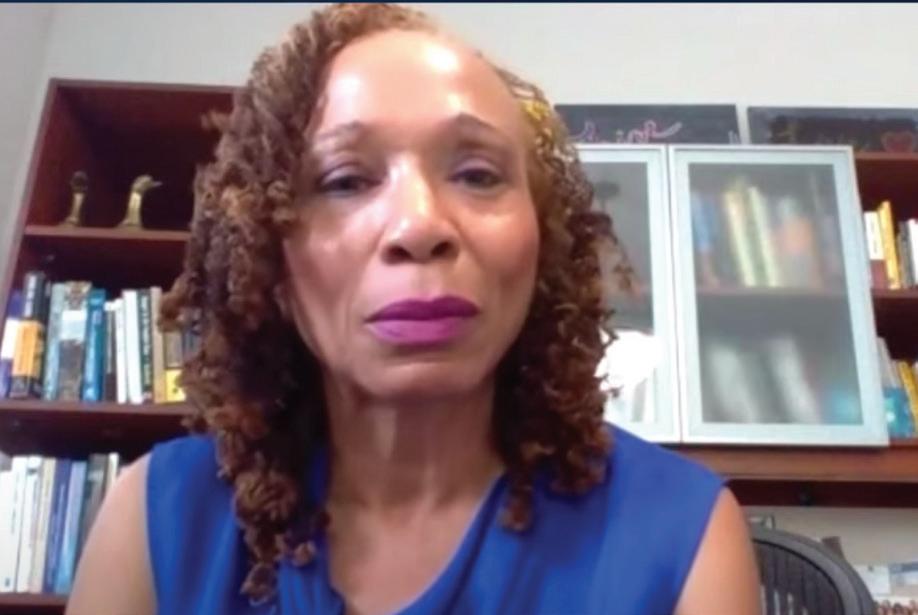
is anti police who kill unarmed, innocent Black people. They shoot them in the back eight times; they put their knee on their neck for 8 minutes and 46 seconds. Those people need to immediately be dealt with in a way that is just.



